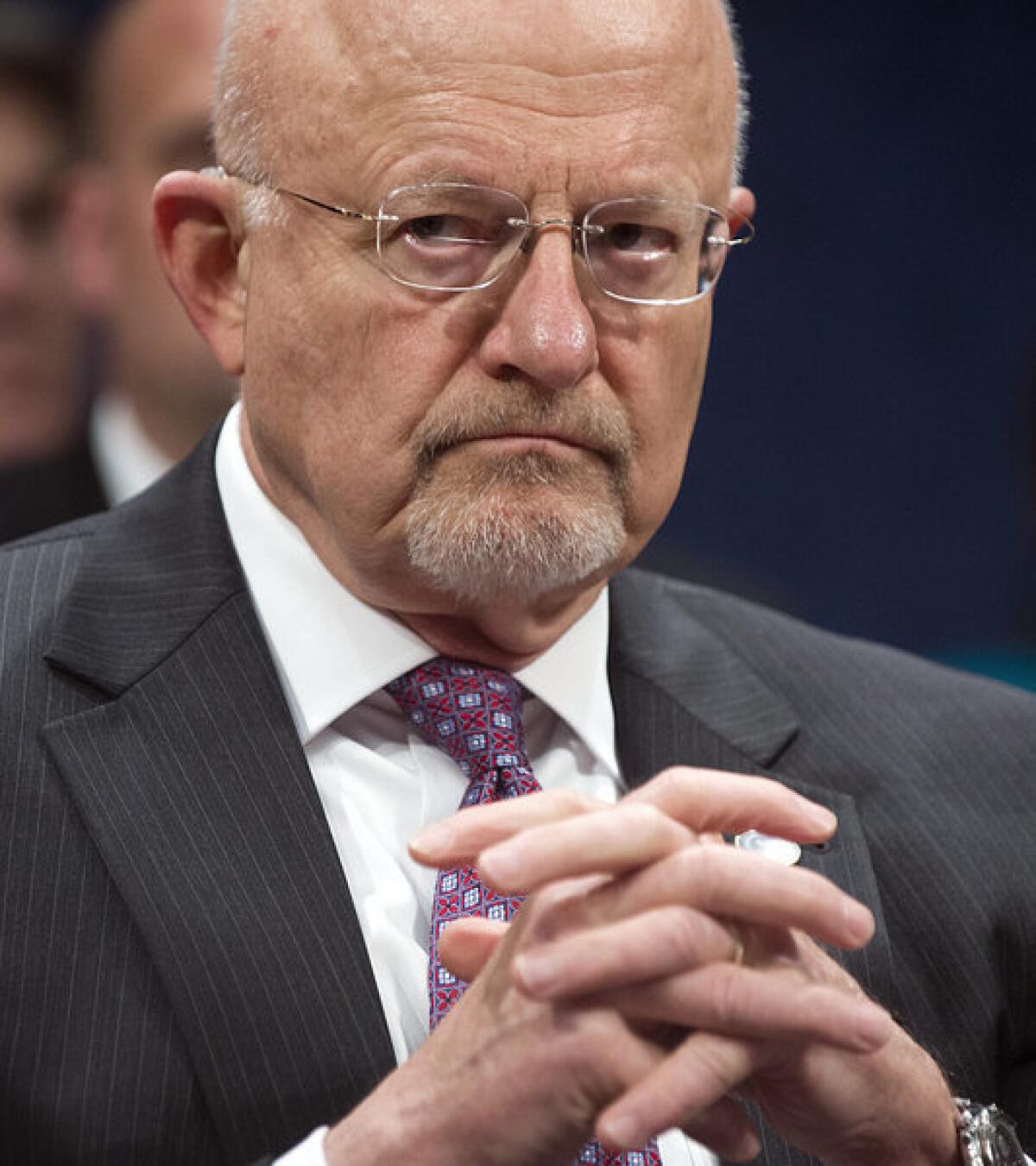McManus: Head-in-the-sand Congress

Rep. Jim Sensenbrenner (R-Wis.) , a former chairman of the House Judiciary Committee, is hopping mad. Sensenbrenner considers himself the father of the Patriot Act, the 2001 law that gave the federal government new powers to investigate potential terrorists. But he thinks the National Security Agency’s program to collect records on every telephone call in the country goes well beyond what he intended.
“This is an abuse of that law,” Sensenbrenner thundered. What’s more, he complained, the Obama administration never told him about it. “Some members of Congress were briefed,” he said, but “most, including myself, were not.”
There are two problems with Sensenbrenner’s complaints. First, the Justice Department did tell his committee about the secret program, just not in public. And second, as the author of Section 215, the clause under which the NSA collected telephone metadata, he had every reason to ask for more details about how the law was being used; apparently, he didn’t.
Sensenbrenner isn’t the only politician to express shock at what was going on under his nose. Sen. Barbara Mikulski (D-Md.), head of the Senate Appropriations Committee, scolded Atty. Gen. Eric H. Holder Jr. last week for claiming that Congress had been fully briefed.
“This ‘fully briefed’ is something that drives us up the wall,” Mikulski said. “Fully briefed doesn’t mean we know what’s going on.”
But Mikulski knows how to ask the NSA questions if she thinks there are things she’s not being told. The agency is the biggest employer in her home state. She’s been a cheerleader for its expansion and for increasing its budget.
Sen. Dianne Feinstein (D-Calif.), head of the Senate Intelligence Committee, repeatedly told other senators that they could learn more details about the NSA’s activities by coming to her panel’s secure office, but few did. And last year, at the urging of Sen. Ron Wyden (D-Ore.) several proposals were debated on the Senate floor to release more information publicly about the NSA’s intelligence-gathering.
So did Mikulski really have no idea what the NSA was up to? I asked her spokeswoman but didn’t get a clear answer: “She wants to make sure all senators are briefed.”
And there, in a nutshell, is one of the biggest weaknesses in our reliance on Congress to keep tabs on secret programs: Congress often isn’t very good at it. The 9/11 Commission called oversight “dysfunctional” and suggested reforms, but Congress turned most of them down.
By law, members of Congress have access to most classified information, but they often have to ask for it. The two intelligence committees hold regular hearings and briefings on intelligence programs, but legislators who aren’t on those panels usually aren’t included.
And most of them like it that way, according to Stanford’s Amy Zegart, who wrote a book about the oversight system, “Eyes on Spies.” “Rational self-interest has led legislators … to sabotage Congress’ oversight abilities,” she wrote. Intelligence oversight is time-consuming, remote from constituents’ interests and impossible to talk about publicly, factors that drive most members of Congress away.
To be fair, the intelligence agencies don’t make the job easy. They often require members of Congress to ask exactly the right question before giving up an answer — a process former California Rep. Jane Harman calls “20 Questions.” “That’s a fair criticism,” a former top CIA official told me. “Intelligence agencies don’t ... open the pantry doors and invite members of Congress to rummage around. It’s a natural reflex.”
One remedy is to allow intelligence committee staff members more access to classified information, to take the burden off members. “If a tree falls in the Senate and there’s no staff to hear it, it doesn’t make a sound,” said Vicki Divoll, a former chief counsel to the Senate Intelligence Committee. Feinstein urged the administration to give more and higher security clearances to her committee’s staff.
Others have proposed allowing Congress’ auditing arm, the Government Accountability Office, to investigate intelligence operations. But the intelligence community opposes the idea, and Congress hasn’t acted on it.
In the case of the NSA’s collection of telephone metadata, it’s hard to believe Congress was in the dark. The existence of the program (or at least its precursor) was reported in USA Today in 2006. And Feinstein and her vice chairman, Sen. Saxby Chambliss (R-Ga.), noted that the program had been debated on the Senate floor.
That debate was led by Sens. Wyden, Jeff Merkley (D-Ore.) and Mark Udall (D-Colo.), who are now pressing again for more information to be declassified. But opinion polls suggest that there won’t be much pressure for stricter limits on intelligence-gathering. A survey by the Pew Research Center and the Washington Post released this week found that most Americans think the NSA’s collection of telephone records is acceptable.
In the end, we still have to rely on Congress to ensure that intelligence agencies don’t overstep the law. That means we need to support them when they shoulder the sometimes unpopular burden of tougher oversight — but also call them to account if they develop selective amnesia when something goes wrong.
Follow Doyle McManus on Twitter @DoyleMcManus
More to Read
A cure for the common opinion
Get thought-provoking perspectives with our weekly newsletter.
You may occasionally receive promotional content from the Los Angeles Times.







